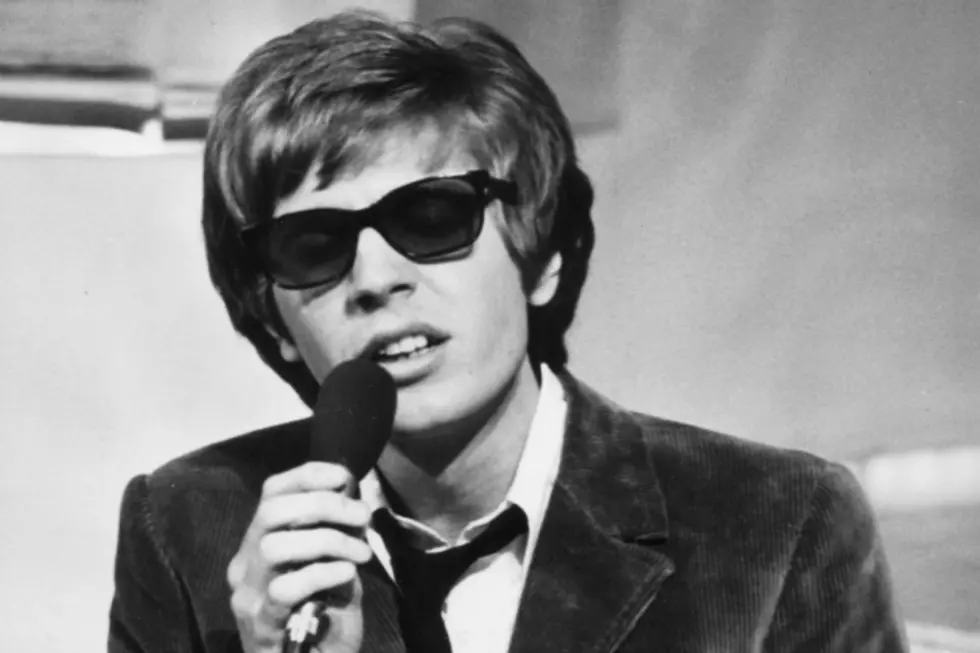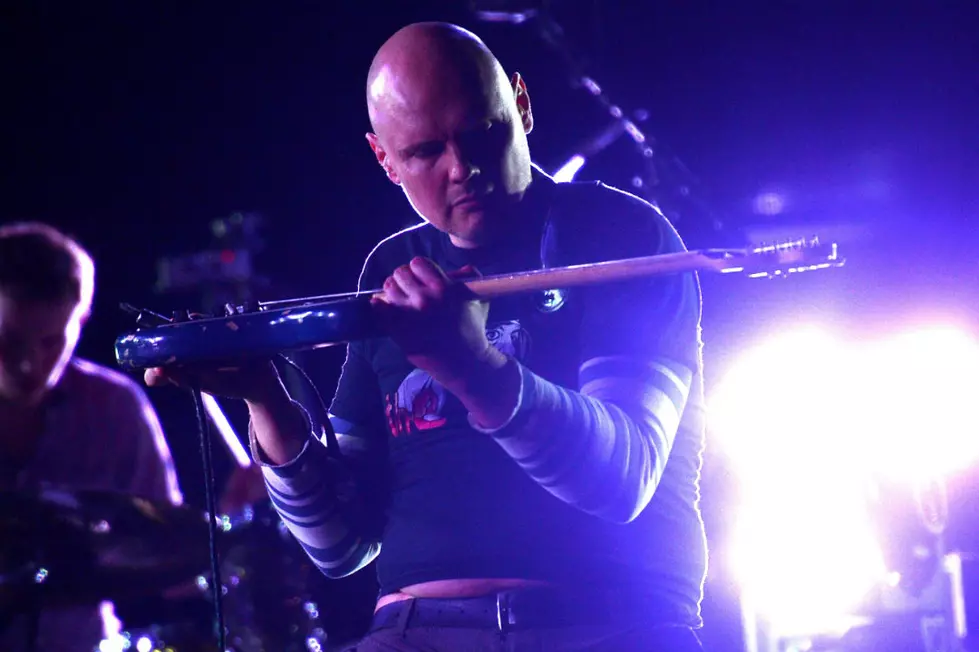
The Roots of Indie: Scott Walker
Just as the British were invading America on the backs of the Beatles in 1965, three American musicians arrived in England. They called themselves the Walker Brothers, though they weren't brothers and none of them were actually named "Walker." The name was just a bit of show business not unlike, say, the Ramones.
Their first single didn't garner much attention, but it's follow-up, "Love Her," cracked the UK top 20:
That silky baritone belongs to Scott Engel, aka Scott Walker, the band's bassist. Walker was a bit of a child star, appearing as both singer and actor on television as a teenager. Prior to making the move to England, Engel was briefly marketed in his native country as a teen idol:
It must have seemed like every kid in England was putting together a rock 'n' roll band in the wake of the Beatles' success. One such lad was David Jones – a teenager desperately trying to find his footing in the music business. Like Engel, he would eventually rename himself – going with "David Bowie," and fans would delight at his propensity for reinvention.
Even as a teen, though, the Dame already exhibited his chameleon traits. He moved from Little Richard-inspired bands to mod to blues, tried his luck as a teen idol with novelty songs and even adopted the cabaret style of Anthony Newley. But look at the cover of Bowie's first album and consider that distinctive baritone of his. David Bowie was a Scott Walker fan.
As pop bands tend to do, the Walker Brothers ran their course fairly quickly. By '67, they were done and, within months of their last LP, Walker released his first solo album, Scott. This was no "teen idol breaks out" debut, but rather a statement of artistic defiance. The mood was darker, the song selection more mature. Among the cover songs on Walker's debut are Jacque Brel's "Amsterdam" and "My Death" -- hardly top 40 fare:
The album was retitled Aloner for the American market, where it failed to chart. However, Scott was well-received in the U.K., where it reached No. 3 on the album charts.
As Walker's career as a pop artist was winding down, Bowie's was gaining steam. His first success was a bit of a well-timed fluke: "Space Oddity's" story of poor, lost Major Tom coincided roughly with the the first lunar landing, providing the young artist with the greatest free marketing campaign in music history.
Things really began to cook in '72, though, when the chameleon shed yet another skin and revealed Ziggy Stardust. Bowie was now a true superstar, which made his onstage retirement announcement at London's Hammersmith Odeon only a year later even a greater shock. Alongside his own meager catalog, Bowie sprinkled a few covers into the Ziggy-era set including Brel's "Amsterdam" and "My Death," which on that fateful night must have felt even more poignant for the grieving crowd.
After closing out the '60s with three solid solo albums, Walker entered a long period of commercial and artistic decline. His fellow Walkers weren't doing much better, so the band reunited in '75 with the either aptly or ironically titled No Regrets. The title track borders on alt-country, with Walker's baritone more commanding than ever.
The reunion resulted in another trio of albums, culminating with 1978's Nite Flights. Walker's four contributions are the record's highlights, particularly the title track. Walker was honing in on a clean, dramatic style that would influence not only Bowie but Iggy Pop, Peter Murphy, and the Psychedelic Furs' Richard Butler.
After hitting a commercial peak with 1983's Let's Dance, Bowie began a decade-long slide into mediocrity not unlike Walker's. When he emerged from the doldrums ten years later, it was unsurprisingly with an able assist from Walker's "Nite Flights."
The similarities between Walker and Bowie are many, but the differences are equally significant. After his early brush with fame, Walker avoided the spotlight for the most part. His work grew more serious and dense, harder for listeners to penetrate both lyrically and musically.
Where Bowie's flavor of avant-garde music leaned toward top 40 accessibility, Walker's spiraled ever more inward. During the Thin White Duke's hit single '80s, Walker released a single solo album, 1984's Climate of Hunter. Cuts like "Track Three" sound as contemporary today as they did 30 years ago.
When he surfaced 11 years later with 1995's Tilt, Walker was no more than a footnote for music fans, if they knew knew the name at all. He didn't seem to mind. Songs like "The Cockfighter" were so unapproachable they made Nine Inch Nails sound like Milli Vanilli.
Scott Walker remains the deep root hidden from view that feeds everything from goth to shoegaze to Arcade Fire, either once removed because the bands owe a debt to Bowie or because they've gone to the source directly. Regardless, his influence stands in disproportion to his commercial success primarily because Walker focused on the music rather than his career. With a voice that some critics claim was better than Sinatra's, the singer refused the sorts of histrionics that make a pop legend -- warbly vibrato, for example -- if they didn't suit the song.
As for Bowie, don't misunderstand the comparisons made in this short essay. The Dame did not "rip off" Walker; rather, he has always been very open about the man's influence on his work. In fact, the two make no secret of their mutual admiration as this clip of Walker wishing his protege a happy 50th birthday demonstrates.
More From Diffuser.fm









